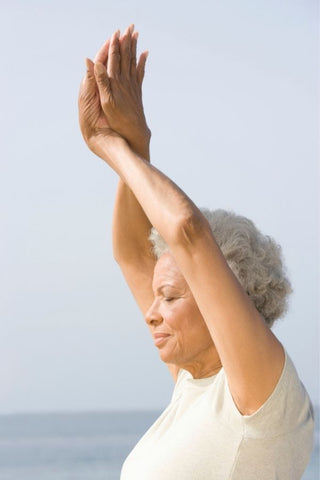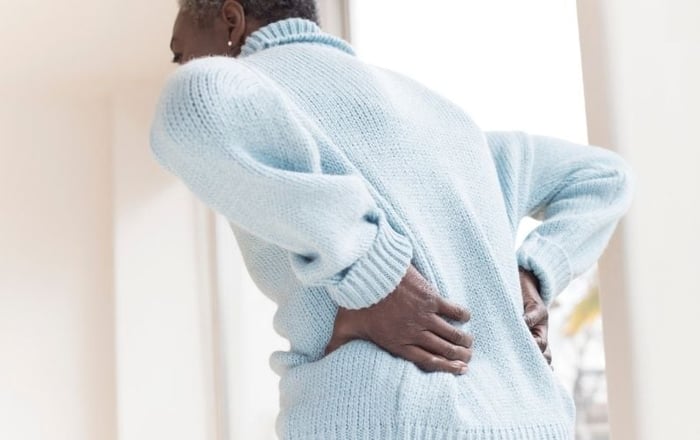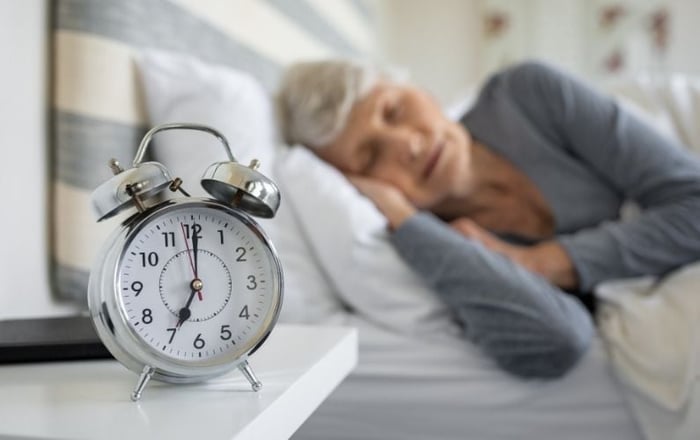If you are over the age of 40, it's time to start thinking about osteoporosis prevention. Learn how you can make simple lifestyle changes to reduce your risk and maintain healthy bones as you age.
Osteoporosis is a condition that affects the bones in your body. It causes them to weaken and become brittle, which increases your chances of fractures and breaks. As you age, you are more likely to get osteoporosis because your body's ability to produce new bone decreases.
Luckily, there are some things you can do today that will help keep your bones healthy tomorrow! Keep reading to learn more about osteoporosis prevention and bone health products that can help.
Osteoporosis Prevention Tips: What You Need to Know
Please note that certain vitamins and supplements may not be right for you. Always read and follow the label and consult a healthcare professional for more information.
1. Get Enough Calcium
You probably already know that getting enough calcium is essential for your overall health. However, did you know that it is especially important for osteoporosis prevention?
Thankfully, there are plenty of ways to get the calcium you need! You could take a supplement, but you should first try to get your calcium from food sources if possible. For example, milk, yogurt, and cheese are all high in calcium.
Dairy products are one of the best sources of calcium available (and they're also a good source of protein). If you are vegan or lactose intolerant, you can try non-dairy sources of calcium such as leafy greens, soy foods, and beans.

2. Increase Your Vitamin D Intake
Vitamin D is an essential nutrient that helps your body absorb calcium, which is critical for building and maintaining strong bones. Since your body doesn't naturally produce it and the sun isn't as available during winter, you must ensure you're getting enough from the foods and supplements you consume.
It's especially important for women to get plenty of vitamin D because they have a higher risk of suffering from osteoporosis. And since osteoporosis is most common among post-menopausal women, it's vital to think about your vitamin D intake as you get older.
Vitamin D intake, when combined with sufficient calcium, a healthy diet, and regular exercise, may reduce the risk of developing osteoporosis.
3. Do Weight-Bearing or Resistance Exercises
Strength training can be a powerful tool for feeling strong and healthy.
If you're looking to get started with strength training, you've probably heard that weight-bearing exercises are great for warding off osteoporosis, which is true. But did you know that resistance training is another option?
Weight-bearing exercises include running, jumping rope, climbing stairs, and hiking. High impact activities are great at lowering your risk of osteoporosis—and they're even better when done regularly.
Resistance training isn't quite as high-impact as weight-bearing exercise is—but it still has its benefits in increasing bone strength and reducing your risk of osteoporosis. Resistance training includes exercises like pushups, weight lifting, and yoga—and the higher the intensity of the resistance you use during your workouts, the better!
Check out our top osteoporosis exercises for healthy bones here.
When starting a new exercise plan, always be sure to consult a healthcare professional, especially if you have any existing health conditions or injuries.

4. Avoid Smoking and Excessive Drinking
If you're a smoker or drinker, you may want to think about cutting back or quitting. Not so you can have whiter teeth or fresher breath, but so that you can help prevent osteoporosis!
It's well known (and widely accepted) that smoking has a lot of adverse effects on the body. It causes cancers, heart disease, and many other health problems. But it's not as well known what smoking does to your bones.
Smoking accelerates bone loss and decreases bone strength because it makes your body release higher parathyroid hormone levels (PTH). PTH helps your body absorb calcium, so having more of it means you lose calcium faster. You also need vitamin D to absorb calcium—smoking interferes with how your body uses vitamin D.
Alcohol increases osteoporosis risk by reducing bone formation, increasing bone breakdown, and interfering with how your body uses vitamin D. Additionally, alcohol is associated with falling, which can lead to broken bones if you're already at risk for osteoporosis.
5. Prioritize High-Quality Sleep
So, you've heard that sleep is a crucial component of our health, but what exactly makes it so important?
Sleep helps repair your bones. It's true! Sleep is when your body can build and repair muscle tissue, including bone tissue. Consistently getting enough sleep gives your body time to make repairs that keep your bones strong, especially as you age.
If you have poor quality or not enough sleep, your body won't have time to build and repair bones properly. That said, we recommend prioritizing your sleep quality by investing in natural sleep aids and a relaxing bedtime routine.

Final Thoughts
As you age, it's natural for your bones to deteriorate. But that doesn't mean you have to let them get weak! Try the tips above, and don't forget to talk to your doctor about the best ways for you to preserve your bone strength.
Finally, don't forget to check out our assortment of osteoporosis products here.










